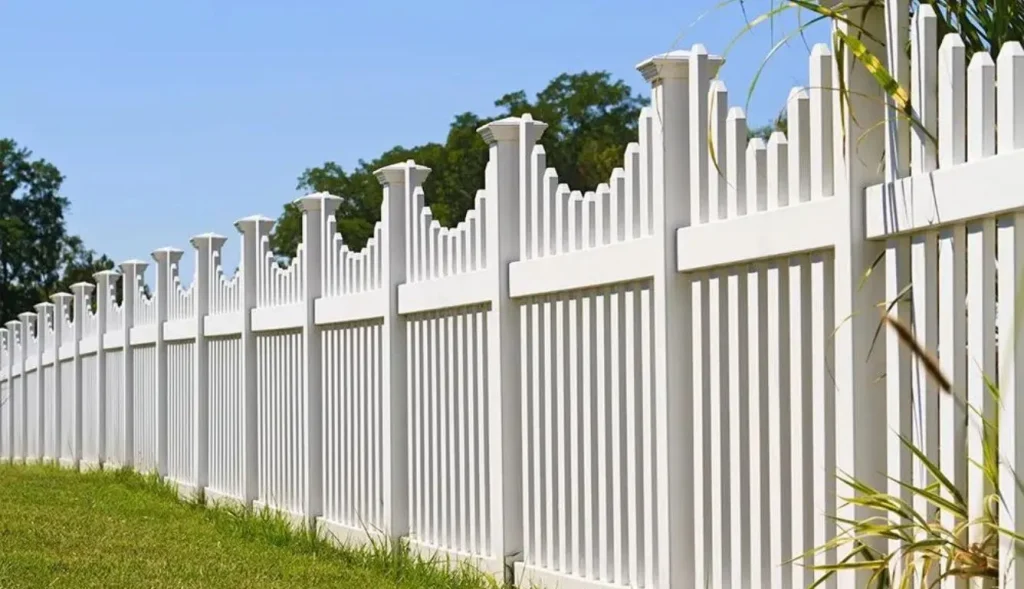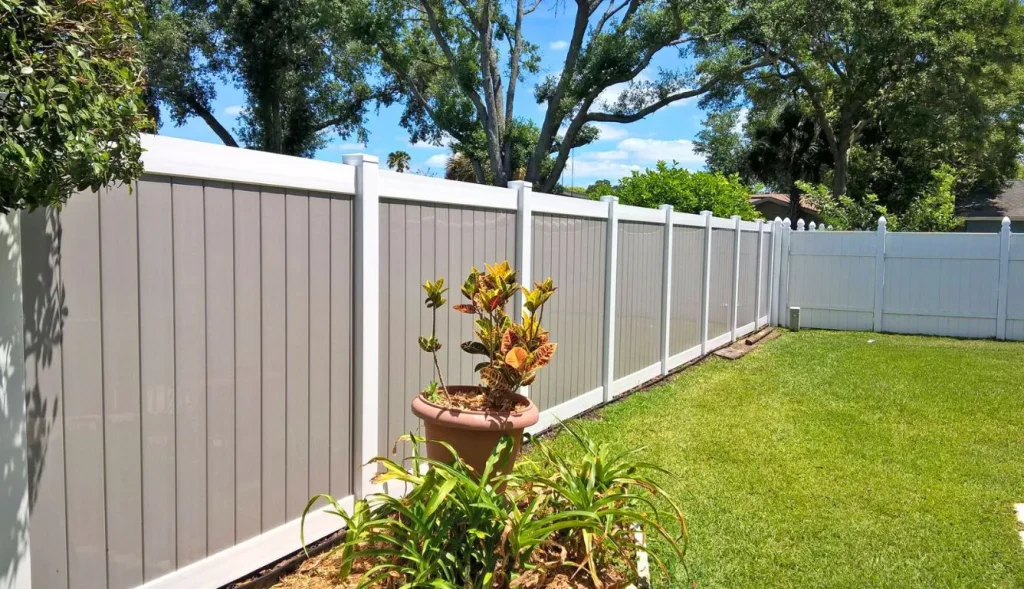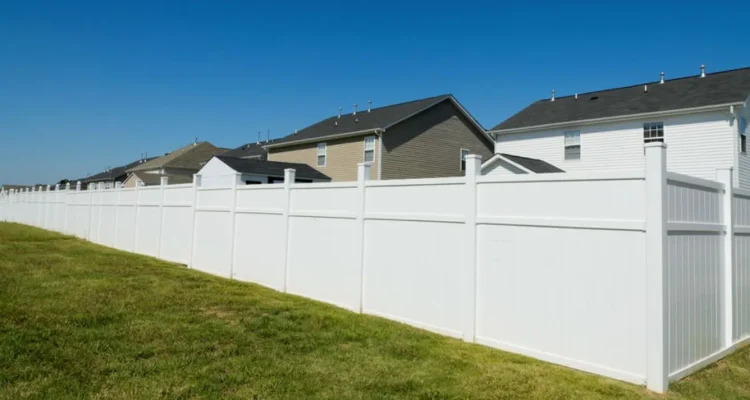Introduction
When it comes to selecting a fence, durability is often a top priority. After all, no one wants to spend money and effort on something that won’t last. Whether you’re installing a fence for privacy, security, or aesthetics, choosing the right material can save you years of repairs and replacements. But what factors contribute to fence longevity, and which type of fence is built to last?
Let’s dive into the different types of fences and determine which ones stand up best to the elements and wear and tear over time.

Factors That Influence Fence Longevity
Several factors can significantly influence how long a fence will last. Understanding these elements can help you make an informed decision:
Weather Conditions
Exposure to extreme weather conditions can drastically shorten the life of a fence. Sun, rain, snow, and humidity all play a role in degrading materials, whether it’s causing wood to rot or metal to rust.
Maintenance Requirements
Some fences require regular upkeep to maintain their strength and appearance. Failing to perform necessary maintenance, such as cleaning, painting, or sealing, can lead to premature damage and decay.
Material Quality
The quality of the materials used in your fence also plays a key role in its durability. Higher-quality materials are generally more expensive but tend to last longer and require less maintenance.
Types of Fences That Last the Longest
There are several different types of fences on the market, each offering varying degrees of durability. Let’s explore the most long-lasting options available.
Vinyl Fences
Durability and Weather Resistance
Vinyl fences are known for their impressive durability and resistance to harsh weather conditions. Unlike wood, they don’t rot, warp, or splinter, making them a popular choice in areas with high humidity or extreme temperatures.
Lifespan and Maintenance Tips
With proper care, vinyl fences can last upwards of 30 years or more. They require minimal maintenance, needing only occasional washing to keep them looking new. A quick rinse with a garden hose can easily remove dirt and mildew.
Metal Fences
Types of Metal Fences (Aluminum, Wrought Iron, Steel)
Metal fences, such as aluminum, wrought iron, and steel, are some of the most durable on the market. Aluminum fences are lightweight and rust-resistant, making them ideal for coastal areas. Wrought iron, although prone to rust, can be treated to extend its lifespan.
Corrosion Resistance and Longevity
Steel and aluminum fences offer excellent corrosion resistance, particularly if treated with a powder coating. These fences can last for decades, especially with regular maintenance to prevent rust.
Composite Fences
Eco-friendly and Durable Option
Composite fences are made from a blend of wood fibers and plastic, offering the natural look of wood with the durability of vinyl. They are also eco-friendly, as many composites are made from recycled materials.
Minimal Maintenance for Long Lifespan
A composite fence can last for 25-30 years with minimal maintenance. They are resistant to fading, staining, and warping, requiring only occasional cleaning to maintain their appearance.
Wood Fences
Types of Wood Fences (Cedar, Redwood, Pressure-treated)
Wood fences, though classic and beautiful, require more care to maintain their longevity. Cedar and redwood are naturally resistant to decay, but even these woods need treatment to prevent rot and insect infestations. Pressure-treated wood is another popular option due to its increased resistance to the elements.
Why Wood Requires More Maintenance
Without regular maintenance like staining and sealing, wood fences are more susceptible to weather damage and pests. If maintained properly, a wood fence can last between 15 and 20 years.
Chain Link Fences
Affordability and Durability
Chain link fences might not be the most attractive option, but they are incredibly durable and cost-effective. Made from galvanized steel, they resist rust and corrosion well.
Lifespan and Best Uses
Chain link fences typically last between 20-30 years with minimal maintenance, making them an excellent choice for homeowners who prioritize function over form.
Comparing the Lifespan of Fence Materials
Different fence materials come with different expected lifespans. Here’s a general overview:
- Vinyl: 30+ years
- Metal (Aluminum, Steel): 20-30 years
- Composite: 25-30 years
- Wood (Cedar, Redwood): 15-20 years
- Chain Link: 20-30 years
Best Fence for Different Climates
Ideal Fences for Humid Areas
Vinyl and aluminum fences are excellent choices for humid regions, as they resist moisture damage and won’t warp or rot like wood.
Best Options for Dry or Arid Climates
In drier climates, wood fences, particularly cedar or redwood, perform well. However, regular sealing is necessary to protect against sun damage and cracking.
Maintenance Tips for Prolonging Fence Life
Regardless of the fence material you choose, proper maintenance can extend its life significantly.
Regular Cleaning and Repairs
Regularly inspect your fence for damage, and promptly repair any issues. Cleaning it annually will help prevent the buildup of dirt and debris, which can lead to deterioration.
Weatherproofing Techniques
For wood and metal fences, applying a protective coating or sealant can go a long way in preventing water damage and rust. Re-seal or re-paint your fence every few years for added protection.
Choosing the Right Fence Based on Your Needs
Security and Privacy Concerns
For added privacy, solid fences like vinyl or composite work best, while chain link or aluminum fences are better for security without obstructing visibility.
Budget and Aesthetic Preferences
If budget is a concern, chain link or wood fences are generally more affordable. Vinyl and composite fences, while more expensive initially, provide better long-term value with minimal maintenance.
Sustainability Considerations in Fencing
Eco-friendly Fence Options
Composite fences made from recycled materials are an eco-friendly choice. Vinyl fences are also recyclable and have a long lifespan, reducing waste over time.
Sustainable Maintenance Practices
Using eco-friendly cleaning products and repair materials can help minimize the environmental impact of maintaining your fence. Opting for sustainable options when replacing or repairing your fence can further support environmental conservation.
The Most Cost-Effective Long-Lasting Fence
Balancing Cost and Durability
Chain link fences and pressure-treated wood offer a balance of cost and durability. While vinyl and composite fences have higher upfront costs, their minimal maintenance needs often result in better long-term value.
Long-term Value of Different Materials
Investing in higher-quality materials like vinyl or composite fences can be more cost-effective over time due to their durability and low maintenance requirements. Consider the long-term value when choosing your fence material.
FAQs
What is the longest-lasting fence material?
Vinyl and composite fences are the longest-lasting, often exceeding 30 years with minimal maintenance.
How can I make my fence last longer?
Regular cleaning, prompt repairs, and weatherproofing can extend the life of any fence.
Which fence type requires the least maintenance?
Vinyl and composite fences require the least maintenance, needing only occasional cleaning.
Does climate affect the lifespan of a fence?
Yes, different climates can impact fence longevity. For example, wood fences may deteriorate faster in humid conditions, while vinyl handles moisture better.
Is there a fence type that balances cost and durability?
Chain link and wood fences offer a good balance of cost and durability, though vinyl and composite fences provide better long-term value with higher initial costs.

Conclusion
Selecting the right fence involves considering various factors, including material durability, climate, maintenance requirements, and budget. Vinyl and composite fences provide excellent longevity with minimal upkeep, while metal fences offer strength and durability. Wood and chain link fences, though requiring more maintenance, can still be effective depending on your needs. By understanding the different options and their longevity, you can make an informed choice that will serve your property well for years to come.


Congratulation!